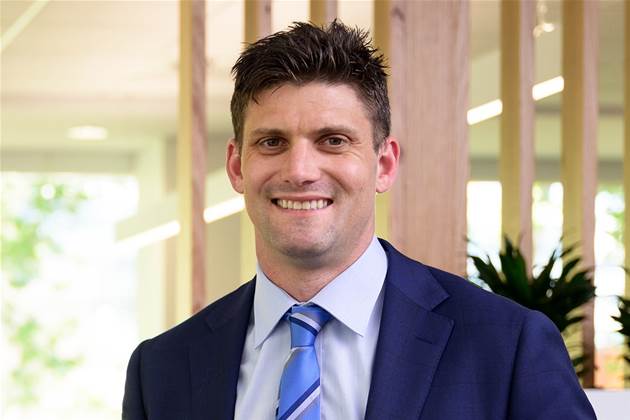Macquarie University is set to spend between $500 million and $700 million on a decade-long digital transformation.

Macquarie University
The Sydney-based institution and hospital has already carried out a significant migration of its VMware-based infrastructure to Amazon Web Services and decommissioned its Oracle on-premises servers.
However, according to recently promoted chief information and digital officer (CIDO) Jonathan Covell, these are just the “foundation steps” for a much bigger modernisation plan.
“We see this as an opportunity for true transformation,” he told iTnews. “This isn’t just about digitising paper processes."
According to Covell, the past 10 years have been dedicated to overhauling physical infrastructure; now, the next 10 years will focus on digital experience.
“We need to rethink all the ways we do these things to have a true transformation,” he said.
"It takes a lot of trust and a lot of effort. The work we have done to get our foundations right means we will not be held back by technology anymore.”
The groundwork
Managed by IT services provider Kyndryl, the cloud migration saw 480 virtual machines covering applications for finance, customer relationship management and student support software moved onto AWS.
According to Covell, Macquarie has now moved 85 percent of workloads, as well as several applications, into the cloud.
The university plans to reduce its use of VMware to the "bare minimum" over the next two years in light of its acquisition by Broadcom.
Covell's team hopes to achieve this through environment retirements, a "sharp commitment on managing utilisation and removing unused overhead from VMware farms".
Following this, the team intends to "assess, plan and pilot for larger scale migration" off of VMware, commencing at the end of this year.
“We’re trying to step off that ship before it’s underwater,” Covell said.
"We’re well positioned as we already use alternative technologies: containers, serverless, public cloud IaaS.
"We are proofing a number of these to understand the operational, financial and capability and skill impacts to inform a possible migration.
"VMware on AWS will be our first target environment to begin migration this year."
Virtual data centre
In addition to its cloud operations, Macquarie University has a "virtual data centre", which it describes as “a cloud-based equivalent of a physical data centre” that sits on its campus. It primarily replaces a decommissioned Dell EMC Isilon network-attached storage platform.
Explaining the decision to keep an on-premises environment, Covell explained: “We have a lot of health data from the hospital that does not lend itself to being on the public cloud."
"We take our health data very seriously. We’re the only hospital in the country owned by a university that has an electronic medical record," he said.
"Not only is security important, but resiliency. Having an on-premises backup is very important to us.
“We also need to facilitate research. While AWS and other providers can do high-performance compute and storage, there is a lot of technology that requires bespoke solutions. We used to call them the ‘weird and the wonderful’ and that lends well to [its on-premises virtual data centre] where [researchers] can access them themselves.”
While AWS will form the major backbone of the university’s infrastructure for now, Covell envisions this will not always be the case.
“We don’t see one cloud as a long-term solution. In time, we will have a multi-cloud solution, just form resiliency and it’s just good business.”
Next generation
With the cloud environment in place, Covell and the Macquarie University IT team are preparing for the first phase of the digital transformation: the front end of services.
This will start with the implementation of Salesforce in September 2024, which will replace the university’s SugarCRM-based Ask@MQ system.
Other modernisation projects are earmarked for enterprise service management tools, student systems and research systems.
“We’re looking at what the next generation of digital learning platforms looks like,” Covell said.
“This is the reality: students and almost everyone expects a personalised experience. A beautiful campus is great, but if you don’t have the digital experience to back it up, you’re going to lose your students.”
In essence, Covell’s team, alongside the university's council, will be exploring how to "deliver education in a way that’s not been done before, using technologies that were not available before.
“The reality is that with artificial intelligence and cloud-native applications, you can deliver academic [courses] and health in ways that wouldn’t have been possible five years ago,” Covell said.
Although Covell is admittedly “getting a little bit sick" of the countless headlines around AI, the university has begun rolling out several small-scale AI pilot projects.
“We have set up a test course and, while it doesn’t sound like a big deal, there’s a lot of concern about how to keep students safe when playing with AI,” Covell explains. “We’ve put up an Azure secure area so we can do pilots using our own data.
“We’re putting in policies for staff, so they know what they’re doing. Because we do have a hospital, we have to be really careful.
"We have a lot of databases set up so the academics can work with AI. We don’t dictate what they do in there other than keeping the data safe and secure.”
Covell is also mindful of the concerns surrounding the use of generative AI tools such as ChatGPT and the potential for copyright and plagiarism.
Although Covell said “you can tell straight away” if someone has used ChatGPT at present, he believes “that’s not going to last”. “The algorithm gets better all the time,” he said.
“We will have to change the way we assess rather than rely on someone picking it up
CISO shortlist
As reported by iTnews in March, Macquarie University is on the hunt for a permanent replacement for former chief information security officer (CISO) Jeremy Koster, who left in July 2023.
Covell has narrowed selection down to 90 applicants before embarking on the second phase of the recruitment phase.
“The incumbent Jeremy [Koster] did a fantastic job. My expectation is that whoever takes over picks up where he left off. We have a rolling program of work aimed at improving cyber security across the university.”
One of these is reaching Essential Eight maturity level one, which is expected in the next six weeks.
In addition, the university intends to take the United States’ National Institute of Standards and Technology (NIST) cyber security framework assessment.

.png&h=140&w=231&c=1&s=0)
.jpg&h=140&w=231&c=1&s=0)

_page-0001_(1).jpg&w=100&c=1&s=0)
 Integrate
Integrate





.jpeg&h=271&w=480&c=1&s=1)










